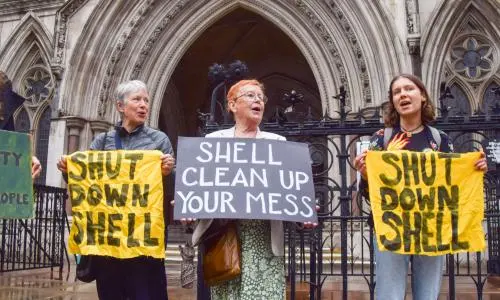Latest reports show that Shell has become the latest large company to pull back from carbon offsets amid concerns many have no environmental impact. This is even as the Carbon Trust discontinues its “carbon neutral” labelling scheme based on offsetting.
The FTSE 100 oil company, which is one of the leading proponents of carbon offsetting, abandoned targets to invest up to $100m a year in carbon credit schemes and purchase 120m nature offsets a year by 2030 as part of a broader watering down of its climate ambitions in June.
The decision, which was first reported in Bloomberg, means Shell joins Gucci, Leon, Nestlé and other firms in moving away from offsets amid repeated indications that huge numbers of carbon credits do nothing to mitigate global heating.
Recall that earlier this year, the Guardian published an investigation that found that the vast numbers of rainforest carbon offsets were worthless. Shell said it still supported carbon credits and said it welcomed efforts to improve their quality.
The latest move comes as the Carbon Trust, one of the leading environmental certification schemes, discontinued its “carbon neutral” labelling scheme based on offsets. A director of the trust acknowledged that consumers may have been inadvertently misled by the label due to poor quality offsets.
Despite growing scientific evidence that indicates many offsets have no environmental worth, the unregulated voluntary carbon market received strong support at this week’s Africa Climate Summit in Nairobi.
The Kenyan president, William Ruto, said that African countries got nothing for the carbon sinks that serve the world, unveiling new carbon market regulations in his country before the summit.
The US climate envoy, John Kerry, also told the conference that Africa and the global south would benefit from a growing carbon market.
“This market has to become a market in the billions in order to work effectively. For that, we need to ensure the environmental integrity of this market. This is critical, not only to protect the climate, but also to create a thriving market because people won’t take the risk either of getting involved in a market that doesn’t have the right standards and guidelines,” he was quoted as saying.
The African Carbon Markets Initiative, which was announced at Cop27 last year, aims to produce 300m carbon credits annually by 2030, unlocking $6bn (£4.75bn) in revenue, and more than a dozen times that by 2050.
At the summit in Kenya, Cop28 hosts the United Arab Emirates (UAE) committed to buying $450m (£360m) of carbon credits from Africa, amid reports the a UAE company is striking deals for large areas of land in anticipation of country to country carbon trading under the Paris agreement.
However, there is significant concern in Nairobi among environmental campaigners about scaling up carbon markets, and there were protests outside the summit, many raising questions about whether they help local communities or store the carbon they claim.
Story was adapted from the Guardian.
